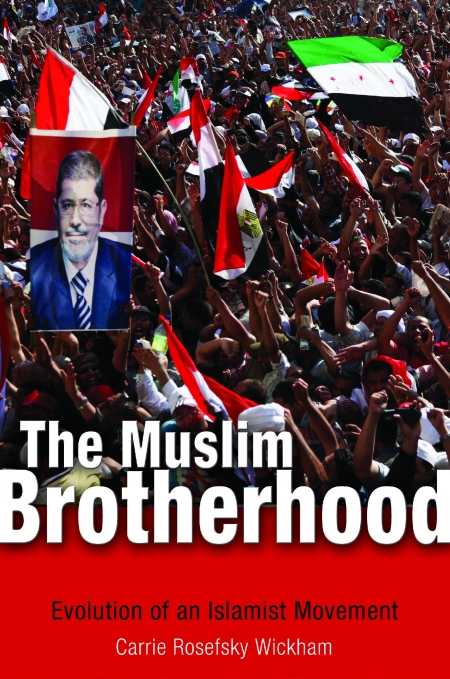The Muslim Brotherhood
Evolution of an Islamist Movement
Impressively enlightening, Wickham’s timely exploration of an influential ideology deepens scholarly understanding of the Middle East.
From political scientist Carrie Rosefsky Wickham, Emory professor and author of Mobilizing Islam, comes The Muslim Brotherhood, a project of renewed international exigence. The book traces the Muslim Brotherhood from its early origins as a marginalized, countercultural revivalist organization through its emergence as major political player during Egypt’s Arab Spring.
Wickham emphasizes that the Muslim Brotherhood has never been wholly static in either aims or approach. Its first leaders embodied Sunni revivalist inclinations and were wary of cultural and political influences from the West. To combat secular corrosion, the Brotherhood sought to persuade Egyptians to lead lives centered in Islam. The early Brotherhood believed that such individual transformations would have a ripple effect, so their movement existed outside of the political sphere.
Wickham shows how the goals and methods of the Brotherhood adapted in response to Egypt’s shifting political climates. The toppling of the monarchy and the subsequent institution of Nasser’s government resulted in the frequent oppression of Muslim Brotherhood members, who, in response, temporarily moved away from early tenets of nonviolence. Gradually, Muslim Brotherhood members inserted themselves into Egyptian politics, often in an attempt to bring about Shari’a-based law.
Wickham shows that, despite thematic undulations, the Brotherhood has always maintained a zealous desire to revive Egypt’s Islamic roots. However, Wickham argues that the gradual softening of the its platform to incorporate more democratic ideals should not be dismissed as a mere ploy. She recounts evidence of the organization’s genuine awareness of the needs of ordinary Egyptians, as well as of its creative responses to those needs. She notes that, in its efficacy, the Brotherhood often eclipsed, scandalized, and alienated Mubarak’s government.
Wickham’s work seeks to flesh out a formally recondite organization which has, of late, become a major presence on the international stage. Her scholarship is impressive and illuminating, and her incorporation of parallel Islamic organizations central to the Arab Spring enables some bold predictions regarding the course of the Muslim Brotherhood in Egypt after Morsi’s instillation. Her assumption that Morsi would place pragmatics above ideology for the good of the state will strike the reader as compelling.
Recent events in Egypt, which unfolded only after the book’s completion, disappointed these hopeful predictions. Nevertheless, Wickham’s thoughtful presentation of the Muslim Brotherhood as both a significant historical player and a responsive ideological organization may serve to deepen our understanding of current upheavals in the Arab world. Fascinating, revealing, and impressive in scope, Wickham’s book stands to make important contributions to contemporary studies of the Middle East.
Reviewed by
Michelle Anne Schingler
Disclosure: This article is not an endorsement, but a review. The publisher of this book provided free copies of the book to have their book reviewed by a professional reviewer. No fee was paid by the publisher for this review. Foreword Reviews only recommends books that we love. Foreword Magazine, Inc. is disclosing this in accordance with the Federal Trade Commission’s 16 CFR, Part 255.

